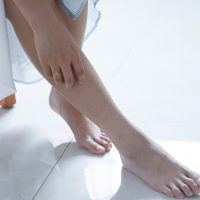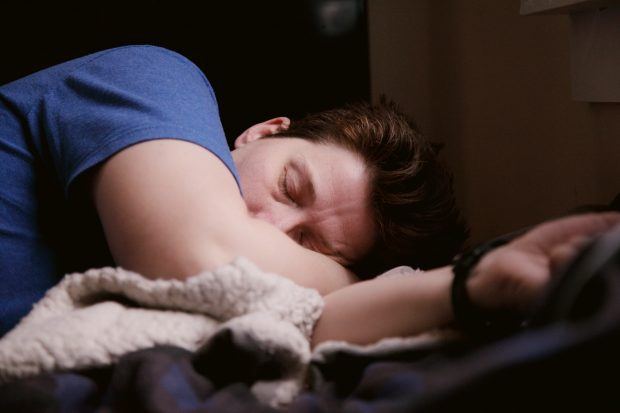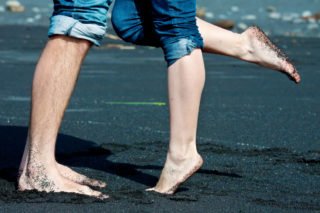Roughly ten percent of the population is affected by restless legs syndrome (RLS), a disorder characterized by an uncontrollable urge to move one’s legs. This can lead to difficulty sleeping and other negative impacts on daily life. If you are one of the millions of people who suffer from RLS, there are treatments available that can improve your quality of life. In this post, we will discuss restless legs syndrome and how you can get help.
What is Restless legs syndrome?
Restless legs syndrome (RLS) is a disorder that impacts the nervous system. People with RLS experience a strong urge to move their legs or other extremities during periods of rest, such as when lying down or sitting. The urge to move is often accompanied by a tingling or burning sensation.
Restless legs syndrome (RLS) usually strikes at night when you’re trying to fall asleep. It’s typically accompanied by an uncomfortable sensation, such as prickling, tingling, or burning. Symptoms can cause significant discomfort and interfere with sleep.
Although RLS can begin at any age, the incidence increases with age. When the condition starts early in life (before the age of 45), the symptoms progress very slowly and generally do not become clinically significant until after age 45, although in some cases, this may occur even in young adults. RLS can occur at any age, but it is more common in middle-aged and older adults. The condition is typically hereditary, and women are more likely to experience RLS than men. There is no single cause of RLS, but it has been linked to iron deficiency, pregnancy, and certain medications.
There is no cure for RLS, but symptoms can be managed with medication, lifestyle changes, home remedies, and with the help of vein specialists. Countless vein clinics, like Elite Vein Clinic in Phoenix, can treat many of the symptoms of restless leg syndrome with minimally invasive procedures.
How does Restless Legs Syndrome affect your life?

Photo by Cats Coming
As we mentioned before, Restless legs syndrome worsens when a person is at rest. This results in often having difficulty falling asleep and waking up frequently during the night. In addition to causing sleep disruption, RLS can lead to daytime fatigue, anxiety, and depression.
In a study conducted outside of Japan, 85% of people suffering from this condition responded that RLS hurt their daily activities. It is clear that RLS reduces the quality of life of sufferers in several ways. Most reported negative emotions such as feeling depressed, and almost half said that RLS interfered with work or home life. Three in ten said they could not work at all because of the condition. RLS also impacts sufferers’ relationships, as it can disrupt other family members’ sleep and lead to feeling isolated. The good news is that available treatments can help lessen the symptoms of RLS and improve quality of life.
If you think you may be suffering from RLS, talk to your doctor about the best options.
Among individuals with diabetes, RLS can impair mental health, increasing the risk for anxiety and depression. Poor sleep quality is associated with numerous negative consequences on health, including impaired glucose metabolism. Since RLS consequences on nocturnal rest and psychological status may impair glycemic control in this population, diabetologists and diabetes educators should investigate the presence of RLS in their patients and treat them.
Many effective treatments are available for RLS, including pharmacological and non-pharmacological options. Simple measures, such as regular physical activity and avoiding caffeine and tobacco, can also help relieve symptoms. Therefore, diabetologists should be aware of the potential impact of RLS on their patients’ lives and take steps to ensure that this condition is diagnosed and treated properly.
 What to do if you suffer from Restless legs syndrome?
What to do if you suffer from Restless legs syndrome?
If you have restless leg syndrome (RLS), you may find that making some lifestyle changes eases your symptoms.
These changes include avoiding stimulants in the evening, not smoking, getting regular exercise, and establishing good sleep habits. You may also need to avoid medicines that trigger or worsen your RLS symptoms. If you think medication is causing your RLS, continue to take it and see your GP for further guidance.
These lifestyle changes can help you get the restful sleep you need and improve your quality of life.
Some measures can help relieve symptoms of RLS. These include massaging your legs, taking a bath, applying a hot compress, and doing activities that distract your mind. Relaxation exercises such as yoga or tai chi can also help. If you are experiencing symptoms of RLS, talk to your doctor to find out what treatment options may be best for you.
Who is the author?

Larizza de Vera is a freelance writer who lives in the Philippines. She wrote byline articles for the Asian Journal newspaper, and has ghostwritten articles for several websites. She has diverse writing experience from writing technical and lifestyle articles.




 What to do if you suffer from Restless legs syndrome?
What to do if you suffer from Restless legs syndrome?

![women [longevity live]](https://longevitylive.com/wp-content/uploads/2020/01/photo-of-women-walking-down-the-street-1116984-100x100.jpg)










